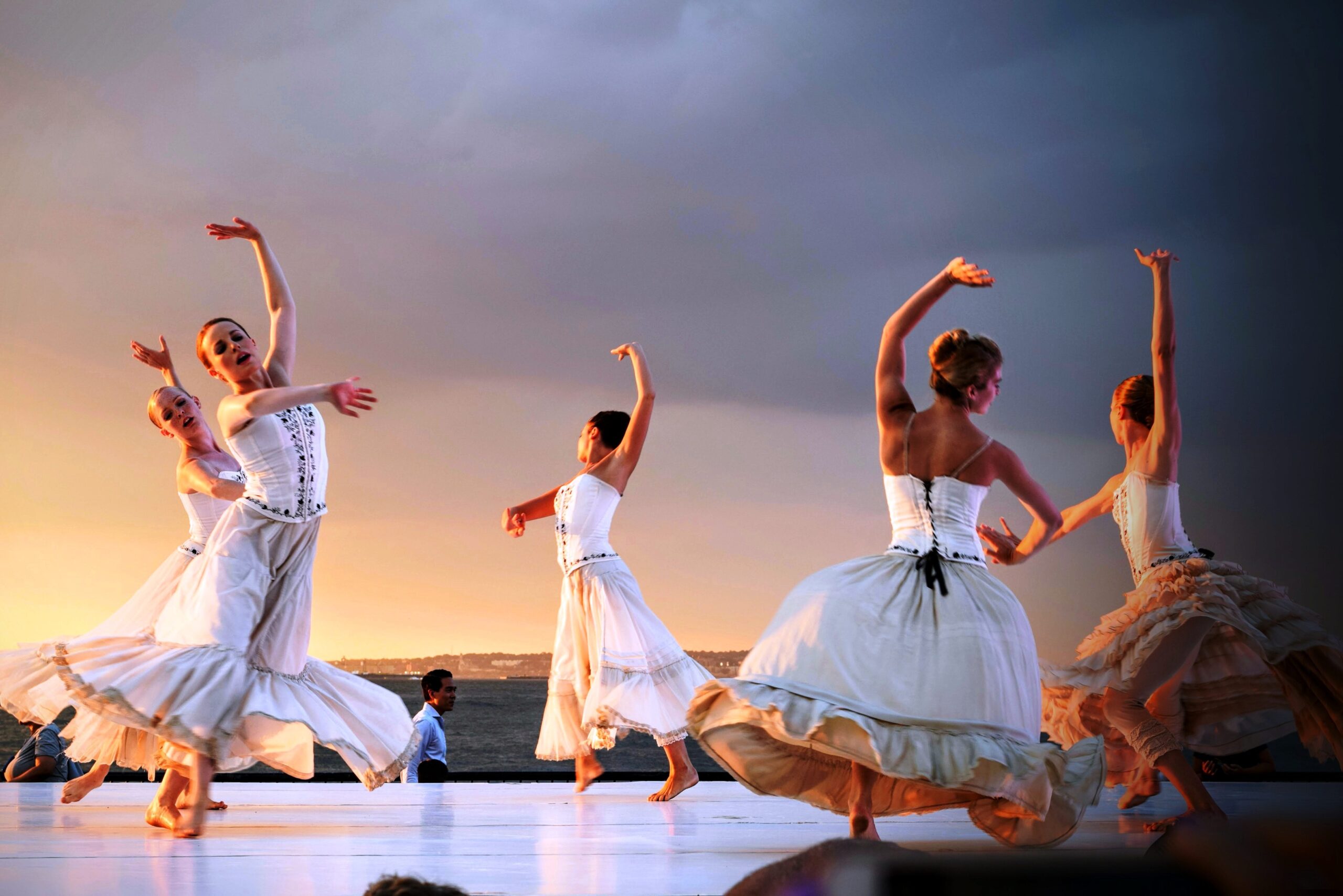Interpreting Dancing Dreams: A Symbol of Joy and Expression
Dancing in Dreams: A Reflection of Emotions
Dancing dreams are a common occurrence that can evoke various emotions and reactions. On one hand, they may bring a sense of joy and euphoria, while on the other, they can be unsettling or even terrifying. Understanding the meaning behind dancing dreams requires delving into their symbolism and exploring the different perspectives from which they can be interpreted.
From a psychological perspective, dancing in dreams is often associated with suppressed emotions, desires, or unresolved conflicts. Dancing may represent an attempt to express oneself freely, without the constraints of societal norms or personal inhibitions. This can manifest as a way of coping with stress, anxiety, or trauma, by channeling these feelings into a creative outlet.
In a more spiritual context, dancing in dreams can be seen as a form of meditation or communion with one’s higher self. Dancing may symbolize the union of opposites – masculine and feminine, conscious and subconscious, rational and emotional. It can also represent a desire for transcendence, connection to something greater than oneself, or the pursuit of spiritual growth.
Dancing in dreams can also be linked to specific emotions or experiences that are unfolding in one’s waking life. For instance, feeling carefree and joyful while dancing may indicate that you’re currently experiencing a period of happiness and fulfillment. Conversely, if your dream involves struggling to dance or feeling awkward, it could suggest feelings of inadequacy or self-doubt.
Furthermore, the context in which dancing occurs within a dream can greatly influence its meaning. Dancing in public or in front of others may symbolize a desire for attention, acceptance, or validation from peers. On the other hand, dancing alone or in private could indicate a need for solitude and introspection, or a fear of being judged by others.
Interpreting dancing dreams also requires considering the individual’s personal experiences and associations with dance. For some, dance may be associated with cultural heritage or family traditions, while for others it might evoke memories of childhood playfulness or carefree days. Understanding these personal connections can provide a more nuanced and accurate interpretation of the dream.
Ultimately, the meaning behind dancing dreams is subjective and can vary greatly from person to person. While there may be common themes and symbolism associated with dance in dreams, it’s essential to approach each individual’s experience with sensitivity and respect for their unique perspective.
Dancing in dreams can be a vivid and memorable experience, often leaving the dreamer feeling elated and uplifted. According to Freudian psychoanalysis, dancing in dreams is a manifestation of repressed desires and unconscious emotions (Freud, 1900). Research suggests that dancing in dreams may also symbolize emotional release and catharsis (Cartwright et al., 1998).
Dancing dreams are a universal phenomenon, transcending cultures and ages. When we dream about dancing, it can evoke feelings of joy, freedom, and excitement. But what does dancing represent in our dreams? Let’s delve into the world of dream interpretation to uncover the meaning behind this vibrant and dynamic symbol.
The psychoanalytic theory, proposed by Sigmund Freud in 1900, suggests that dancing in dreams is a manifestation of repressed desires and unconscious emotions. According to Freud, our dreams are a way for our unconscious mind to communicate with our conscious self, revealing hidden thoughts and feelings that we may not be aware of.
Another perspective on dancing dreams comes from the realm of catharsis. Research by Cartwright et al. (1998) suggests that dancing in dreams can symbolize emotional release and purification. When we dream about dancing, it may represent a need for catharsis, or emotional purging, to process difficult emotions and experiences.
Dancing in dreams can also be seen as a symbol of joy and expression. It represents the freedom to move, to let go, and to express ourselves without constraints. When we dream about dancing, it may indicate that we need to tap into our creative side, pursue our passions, or simply find joy in everyday activities.
Some common scenarios associated with dancing dreams include:
- Dreaming of a dance performance: This can symbolize a desire for recognition, admiration, or attention. It may also represent a need to showcase one’s talents and skills.
- Feeling lost in a crowd while dancing: This scenario can indicate feelings of overwhelm, anxiety, or disorientation in waking life. It may suggest a need to find one’s place or sense of direction in a chaotic environment.
- Dancing with others: This can represent social connections, friendships, or romantic relationships. It may symbolize a desire for community, belonging, or intimacy.
In conclusion, dancing dreams are rich in symbolism and meaning. By exploring the different interpretations of dancing in dreams, we can gain insight into our unconscious thoughts and emotions. Whether it’s a manifestation of repressed desires, emotional release, or joy and expression, dancing dreams invite us to reflect on our lives, desires, and aspirations.
Types of Dancing Dreams: A Guide
Dancing dreams can be a fascinating and complex phenomenon, carrying various meanings that are deeply personal to the individual experiencing them.
In the realm of dream analysis, dancing has been interpreted as a symbol of joy, expression, and celebration of life’s moments, big or small. These nocturnal visions often reflect the subconscious mind’s need for freedom, creativity, and release from daily stresses and routines.
Types of Dancing Dreams:
Dreams about dancing can take many forms, each carrying its unique significance:
Ballet dreams
- Indicate a desire for order and structure in life.
- Might symbolize the need for precision or a fear of making mistakes.
Folk dance dreams
- Suggest a connection to one’s cultural roots and heritage.
- Can symbolize the search for identity or community.
Rhythmic dance dreams (e.g., disco, hip-hop)
- Reflect the need for spontaneity and letting go of inhibitions.
- Can be associated with the desire to escape reality or challenges in life.
These dancing dreams can also serve as a metaphor for personal growth, transformation, and self-expression. They might symbolize the need to break free from societal expectations, express oneself authentically, or embrace one’s true nature.
Interpreting Dancing Dreams: A Guide
To better understand your dancing dreams, consider the following factors:
- Your emotional state when you dreamt about dancing. Were you feeling anxious, excited, or serene?
- What type of dance was featured in your dream? Was it a specific genre or style?
- Were there any notable elements, such as music, costumes, or locations?
- Consider the context of your waking life. Are you experiencing stress, anxiety, or feelings of being stuck?
Remember that dream interpretation is highly personal and subjective. Trust your instincts and explore your own associations with dancing in your dreams.
There are several types of dancing dreams, each with its unique significance. For example, dancing in a public place or in front of others can indicate a fear of being judged or evaluated by others (Bulkeley & Kieran, 2006). On the other hand, dancing alone may signify a desire for solitude and selfexpression.
Dancing dreams can be a rich source of symbolism, offering insights into our thoughts, emotions, and desires. In this article, we will explore the various types of dancing dreams and their unique significance.
One way to interpret dancing dreams is to consider the context in which the dream takes place. For instance:
Dancing in a public place or in front of others can indicate a fear of being judged or evaluated by others (Bulkeley & Kieran, 2006).
On the other hand, dancing alone may signify a desire for solitude and self-expression. This type of dream may suggest that you need some time to yourself to recharge and pursue your individual interests.
Another interpretation of dancing dreams involves considering the emotions associated with the dance. For example:
- Dancing with joy and abandon may indicate a sense of liberation and freedom from constraints.
- Dancing with sadness or regret may suggest feelings of loss or disappointment in your waking life.
The type of music being danced to can also hold significance:
- Slow, melancholic music may indicate a need for introspection and contemplation.
- Fast-paced, upbeat music may suggest a desire for excitement and adventure.
In addition, the specific movements or actions within the dance can offer clues to the underlying meaning:
- Twirling or spinning may indicate a sense of wholeness and integration.
- Tapping or stomping may suggest a need for physical activity or release of pent-up energy.
Ultimately, interpreting dancing dreams requires attention to the unique details of each dream. By paying close attention to the context, emotions, music, and movements within your dance, you can gain valuable insights into your thoughts, feelings, and desires.
Unlocking the Meaning of Dancing Dreams
Dancing dreams can be a thrilling and often uplifting experience, offering a glimpse into our subconscious mind and emotional state. When we dream about dancing, it’s not just about the physical act of moving our bodies to music; it’s also a reflection of our inner world.
Interpreting dancing dreams requires an understanding of the emotions and thoughts that led to this specific scenario in your sleep. Consider what you were feeling during the dream: were you carefree, joyful, or perhaps anxious?
Main Aspects of Dancing Dreams
- Emotional Expression: Dancing dreams often symbolize a desire to express yourself freely and authentically. They may indicate a need for emotional release or a way to channel your feelings into something creative.
- Confidence and Self-Expression: Dancing in your dream could suggest that you’re feeling confident about expressing yourself in real life, whether through your career, relationships, or personal growth.
- Balance and Harmony: In some dreams, dancing represents a sense of balance and harmony within oneself. It may indicate that you’ve found a way to reconcile different aspects of your personality or have achieved inner peace.
- Fear of Missing Out (FOMO) or Anxiety: Conversely, dancing dreams can also reflect feelings of anxiety or FOMO, where you feel pressure to keep up with the pace of life or fear being left behind.
Dancing in your dream could be a reflection of your relationship with music and its role in your life. For example:
- Do you enjoy dancing to music in real life? If so, it might symbolize your desire for self-expression or joy.
- Are there certain songs that evoke strong emotions or memories? Dancing to these songs in your dream could be a representation of those feelings and experiences.
To further analyze the meaning behind your dancing dreams, consider the following questions:
Dancing Dream Questions to Reflect On
- What was happening in the background of the dream? Was it quiet or noisy?
- Were you dancing alone or with others? If with others, were they supportive or distracting?
- Did the music make you feel happy, excited, or anxious?
By reflecting on these aspects and questions, you can gain a deeper understanding of your dancing dreams and uncover the emotions and thoughts that led to this specific scenario in your sleep.
To decipher the meaning behind dancing dreams, it’s essential to consider personal associations, emotions, and experiences. By exploring the context and emotions surrounding the dream, individuals can gain insight into their subconscious thoughts and desires (Krippner, 1990).
Dancing dreams can be a powerful symbol of joy and expression, representing various aspects of one’s life. To interpret these dreams, it’s essential to consider personal associations, emotions, and experiences that may be linked to the act of dancing.
The first step in interpreting a dancing dream is to reflect on your emotional state while having the dream. Were you feeling carefree, energetic, or joyful? Or were you perhaps anxious or uncertain? Identifying your emotions during the dream can help you connect with the underlying message it may be conveying.
Consider the context of the dream as well. For example, were you dancing alone or with others? Was the setting formal or informal? These details can provide valuable insights into the symbolic meaning behind the dance. Dancing alone, for instance, may represent self-expression and individuality, while dancing with others may signify social connection and community.
Additionally, think about your personal experiences and associations with dancing. Have you ever felt a sense of freedom or release when dancing? Or has dancing been an important part of your cultural or family heritage? By examining these connections, you can tap into the symbolic significance of the dance in your dream.
The act of dancing itself may also hold various meanings depending on the context and emotions involved. Dancing can represent creativity, playfulness, and a sense of abandon, but it can also symbolize anxiety, perfectionism, or performance pressure. In some cases, dancing may be a reflection of unresolved emotions or unexpressed desires.
It’s also worth noting that dancing dreams can have different meanings in various cultures and societies. For example, in some African cultures, dancing is seen as a way to connect with ancestors and honor their legacy. In other cultures, dancing may be associated with fertility and abundance.
In conclusion, interpreting dancing dreams requires an exploration of personal associations, emotions, and experiences. By examining the context and emotional state of the dream, individuals can gain insight into their subconscious thoughts and desires, and uncover the symbolic meaning behind the dance.
- Brushing Teeth Dream Meaning: What Does It Symbolize In Your Dream? - October 8, 2024
- Being Hunted Dream Meaning: What Does It Symbolize When You Dream About Being Hunted? - October 1, 2024
- Dream In Color Meaning: What Does Dreaming In Color Represent? - September 30, 2024




